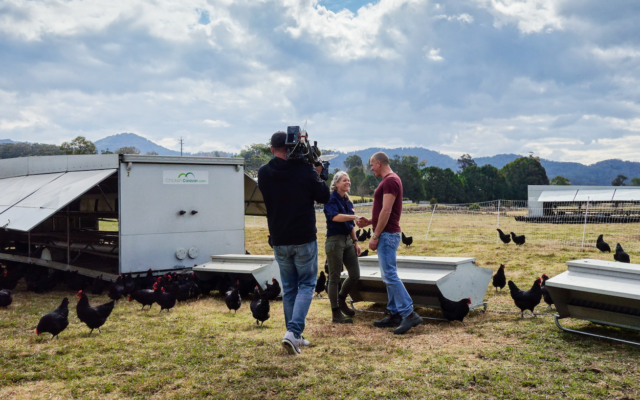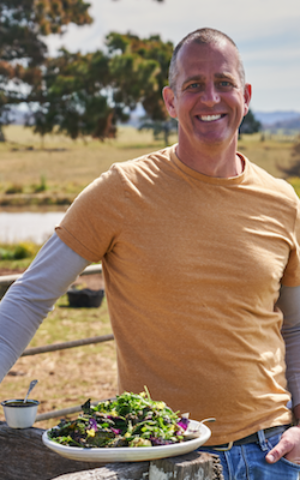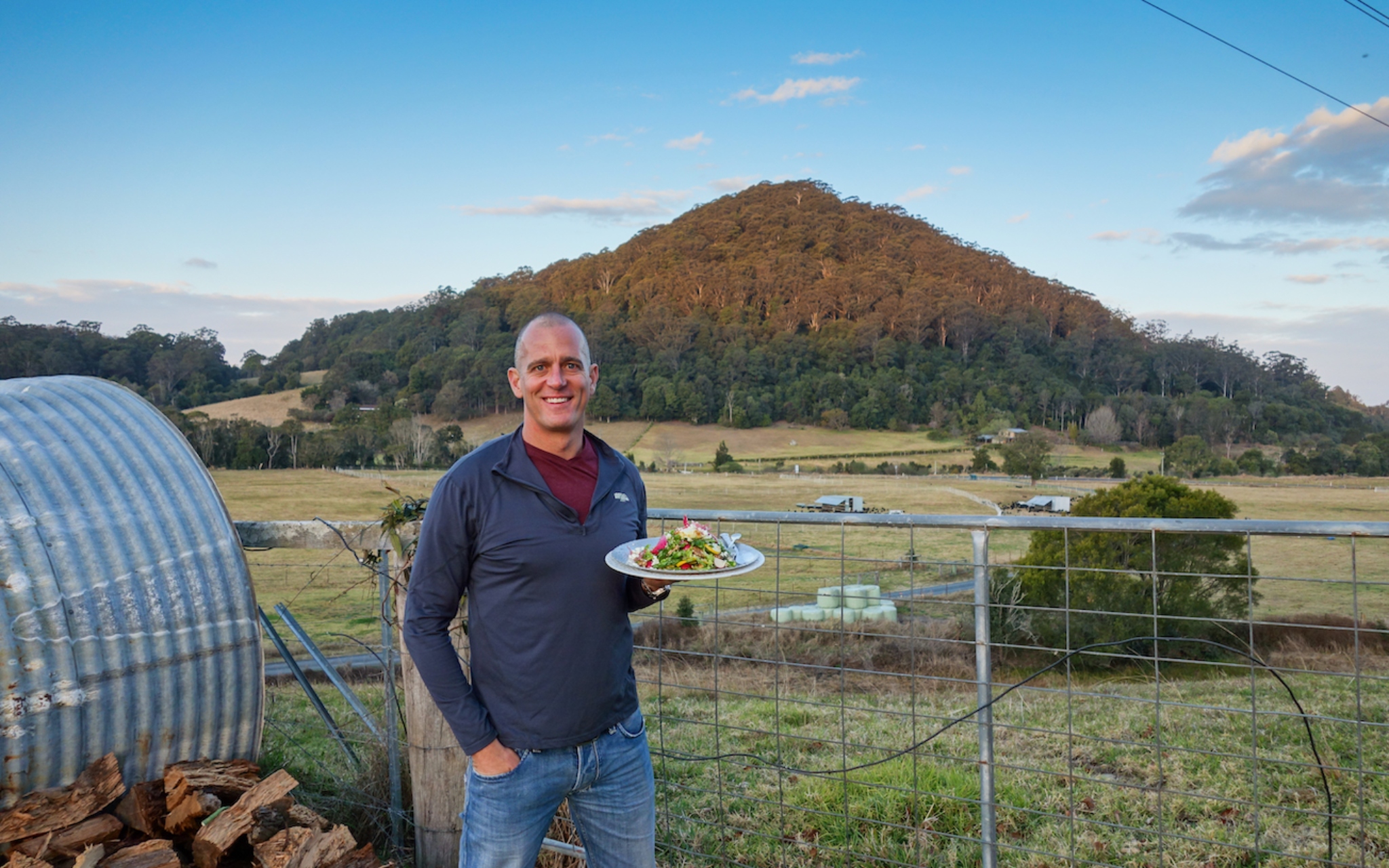All Ed Halmagyi wants to do is make things easier for people in the kitchen while still giving them the chance to cook something fresh and delicious.
Born in Melbourne to Jewish Hungarian immigrants, Halmagyi was, in his own words, “quite an unsettled kid”.
“It wasn’t that I was a bad student,” he said. “If anything, I was a little bored and just wasn’t very well behaved.” At 14, he found a job as a kitchen hand, kick-starting his culinary career. Halmagyi started a law degree, but dropped out, deciding it wasn’t for him. Instead, he found himself travelling the world and working in some of the very best restaurants.
It was when he was working at Otto in Sydney’s Woolloomooloo that Halmagyi got his television break. “Channel 7 came to film Sydney Weekender,” he explained. “I didn’t think anything of it. They just get you to cook a little recipe and you show them around. I was just being me.”
But a few days later, he got a phone call from the series producer of Better Homes and Gardens – and he has featured on the show ever since.
Now, Halmagyi has released his 11th and latest book, Seasonal Kitchen, sharing more than 70 of his favourite dishes from his personal recipe collection.

Embracing his Judaism
While Halmagyi doesn’t necessarily cook a lot of Hungarian food, he certainly cherishes his Judaism and shares the love of the culture and religion with his family.
“The Hungarian side was difficult because when my grandparents left with my father, they gave it up. They didn’t really want to know about it,” Halmagyi explained. “My grandparents, along with my grandmother’s two cousins, were the only ones out of 190 who survived 1944. My grandfather never spoke Hungarian again.”
While Halmagyi has learnt bits and pieces of Hungarian, he says his Hebrew is far superior.
Halmagyi keeps kosher at home but doesn’t expect his two children to, if that’s not what they want. “Imagine being a kosher Jewish student living in a shared accommodation!” he laughed.
So, while keeping kosher, how does he prepare and cook meals that have non-kosher elements? Admitting that it can be difficult – the answer he had to the biblical idea of not touching another animal was: why not just wear gloves – Halmagyi admits that he makes decisions for himself and his relationship with God.
“It’s not my job to tell other people what they should or shouldn’t eat,” he said. “To the extent that I can avoid non-kosher elements in what I create, I avoid them.”
But, how do you create a surf and turf without prawns? “If I was asked to do a surf and turf, wrapped in prosciutto cream sauce, it’s about as uncomfortable as it can possibly get,” Halmagyi mused. “I’m not talking to my Jewish friends here; I’m talking to my non-Jewish friends.”
Despite this, Halmagyi said he lives and breathes Judaism, with his desk covered in books about how to run a traditional kosher kitchen and the philosophy and history of kashrut, in addition to Tanachs and other Jewish scripture texts.
Good food, made easy
When it comes to his cookbooks, Halmagyi believes in making the familiar strange and the strange familiar. “Whether we’re working in television or print or radio, our job is fundamentally about hospitality. How can you make somebody else’s life easier and more enjoyable?” Halmagyi asked. “If someone already understands a technique or ingredient, give it a twist. But if you’re going to go and introduce them to an ingredient or technique that they have no concept of, give it to them in a way that is familiar so they can digest it.” How punny.
 The other concept Halmagyi lives by is: “accessible, affordable and achievable”.
The other concept Halmagyi lives by is: “accessible, affordable and achievable”.
Seasonal Kitchen is set out just that way. There’s no trickery and no fussing. The aim is to make the food look tasty and easy to create.
“The way I view my job is to help families with school-aged children have a slightly better week,” he said.
Halmagyi does this by teaching, rather than telling. “If you go through any of the recipes in this book, it’s peppered with conceptions, techniques, tips, tricks and methodologies to make people a better cook so they can own their own experience.”
Recipes take 10-15 minutes and use ingredients that are readily available to buy or that families are likely to have in their fridges or pantries.
Ultimately, Halmagyi always goes back to the idea of hospitality.
“When you have family hanging out together on the couch on a Friday night, and I love the idea of families sitting at home together, I just want to do my bit to make sure their night is a bit more enjoyable,” he said.
Seasonal Kitchen by Ed Halmagyi is published by Are Media Books, an imprint of Penguin, $29.99 (rrp).


comments